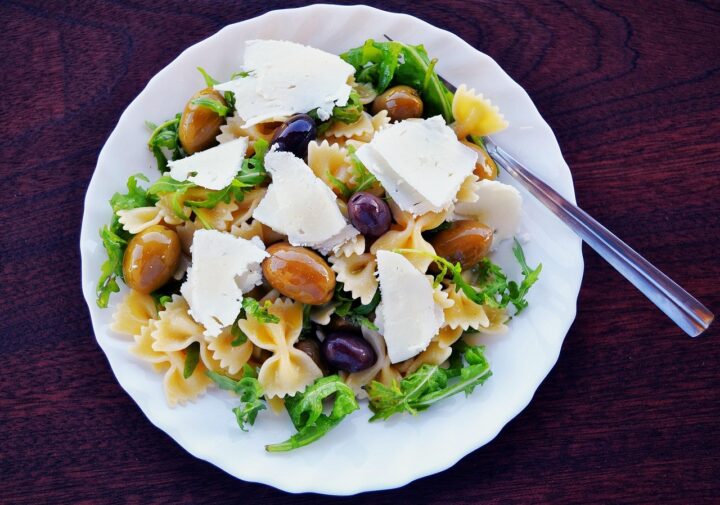How Quality Extra Virgin Olive Oil can help preserve memory
Updated May 24th 2024

Summary
Contents
Is Extra Virgin Olive Oil The Latest Superpower To Boost Your Memory?
In the quest for a healthier lifestyle, many of us find ourselves looking for natural solutions that not only enhance our well-being but also protect us against the ravages of time. One such solution, garnering increasing attention from health enthusiasts, food lovers, and older adults alike, is high-quality extra virgin olive oil (EVOO). Widely celebrated for its myriad health benefits, EVOO is now being studied for its potential role in preserving memory and cognitive function.
Alzheimer’s disease is the most common form of dementia according to News Medical, the U.S. Centre for Disease Control & Prevention. This neurodegenerative disease is progressive and cannot yet be cured or reversed. Researchers are looking at ways of preserving memory through diet and especially extra virgin olive oil.
Beta-amyloid is a substance thought to be involved in destroying brain connections in Alzheimer’s and causing memory loss. But how can incorporating more extra virgin olive oil in your diet help?
The Science Behind Extra Virgin Olive Oil and Memory Preservation
Anti-Inflammatory Properties
Chronic inflammation is a significant contributor to a variety of diseases, including neurodegenerative conditions like Alzheimer’s. The anti-inflammatory properties of oleic acid and polyphenols in EVOO can reduce inflammation in the brain, thereby protecting it from damage and preserving cognitive function.
Promotion of Brain Health
A study published in the journal Annals of Clinical and Translational Neurology found that a diet rich in extra virgin olive oil significantly improved memory and learning in mice, as well as reduced the formation of beta-amyloid plaques and neurofibrillary tangles—hallmarks of Alzheimer’s disease. Although studies in humans are still ongoing, these findings are promising and suggest that EVOO could be a beneficial addition to diets aimed at preserving memory.
Improved Blood Flow
Healthy fats in EVOO also help improve cardiovascular health by reducing bad cholesterol levels and increasing good cholesterol. Improved heart health translates to better blood flow, including to the brain, thus ensuring that your brain receives ample oxygen and nutrients necessary for optimal function.
As one of the main staples of the Mediterranean diet, Extra Virgin olive oil has already been praised by nutritionists for its ability to massage your cardiovascular system, especially when compared to other kitchen staples like butter or margarine. But Extra Virgin olive oil could also provide greater benefits for your mental health when compared to coconut or avocado oil, per new research published in the journal Aging Cell. New research has found that making Extra Virgin olive oil one of your diet’s staples could help keep your memory skills intact as you age and may also greatly reduce your risk of dementia in later years.
The research, which was published after conducting various tests on mice, suggests that the purest forms of olive oil can help break down the build-up of an abnormal protein in the brain. While the scientific community has failed to discover a singular cause of Alzheimer’s Disease and dementia, many experts regard the elevated presence of tau (a kind of protein) in the brain as a main marker for the disease, as they can interrupt important communication functions. The newly-published research found that diets high in Extra Virgin olive oil can effectively decrease the build-up of tau and possibly slow or stop advancing neurodegenerative diseases.
It is estimated to affect approximately 5 million people in the United States alone.
A study by researchers from the Lewis Katz School of Medicine at Temple University (LKSOM) in Philadelphia, reported that extra virgin olive oil, which is the most common component in the Mediterranean Diet, boosts cognitive performance and could aid in preventing Alzheimer’s.
The study involved mice models that have the three components present in Alzheimer’s disease, memory impairment, amyloid plaque build-up and neurofibrillary tangles.
Amyloid plaques are the result of the excess production and build-up of beta-amyloid, a fragment of the protein called “amyloid precursor protein.” In Alzheimer’s disease, these plaques build up in the spaces between neurons and cause loss of memory.
Neurofibrillary tangles are the result of twisted strands of a protein called tau. In a healthy brain, tau helps with the transportation of nutrients and other molecules that the brain cells need. In Alzheimer’s disease, this protein gets tangled up inside the brain cells, which happen to be dying because essential nutrients no longer reach them.
Alzheimer’s characteristics begin to develop in a rodents quite early on, so in this experiment, the oil was added to the diet when the mice were 6 months old, before any symptoms could have appeared.
The mice were separated into two groups. The first were fed a regular diet including extra virgin olive oil while the second group has no extra virgin olive oil added to their diet. The researchers evaluated the mice’s cognitive abilities by administering tests for their spatial memory, working memory, and learning skills.
Extra Virgin Olive Oil Preserves Brain Cell Health
In terms of general appearance, no differences were noted between the two animal groups.
But, when the mice were 9 months and 12 months old, the mice that had been fed the extra-virgin olive oil diet performed much better in the cognitive tests.
Lead investigator Dr. Dominica Praticò and his team also analyzed the brain tissue of these mice, and the studies revealed striking differences between the appearance and functioning of the nerve cells.
Firstly, the integrity of the synapses – which are the parts of the brain cell that facilitate communication among neurons – was preserved much better in the olive oil group. Secondly, the brain tissue in the mice fed olive oil revealed a “dramatic increase” in the autophagy activation of the nerve cells. Autophagy is a process that sees nerve cells disintegrate and eliminate the toxic debris that tends to accumulate between the cells. In this experiment, the increase in autophagy led to a decrease in the amyloid plaques and tau.
Dr. Praticò says, “This is an exciting finding for us. Thanks to the autophagy activation, memory, and synaptic integrity were preserved, and the pathological effects in animals otherwise destined to develop Alzheimer’s disease were significantly reduced. This is a very important discovery, since we suspect that a reduction in autophagy marks the beginning of Alzheimer’s disease.”
Incorporating Extra Virgin Olive Oil into Your Diet
Cooking with EVOO
Extra virgin olive oil is incredibly versatile and can be used in a variety of dishes. Whether you’re sautéing vegetables, grilling meats, or even baking, EVOO can add a rich, flavorful depth to your meals while also providing significant health benefits.
Salad Dressings and Marinades
Use EVOO as a base for salad dressings and marinades. A simple mix of EVOO, lemon juice, salt, and pepper can elevate any salad, making it not only delicious but also nutritious.
Drizzling Over Finished Dishes
Drizzling a bit of high-quality EVOO over your finished dishes can enhance their flavor and boost their nutritional profile. Try it on pasta, soups, or even a slice of whole-grain bread.
Pairing with Herbs and Spices
For an added health kick, pair EVOO with herbs and spices known for their cognitive benefits. Rosemary, for example, has been shown to improve memory and concentration. Combining EVOO with such herbs can make for a powerful, brain-boosting culinary experience
Dubbed the “MIND” diet, short for Mediterranean-DASH (Dietary Approaches to Stop Hypertension) Intervention for Neurodegenerative Delay, this eating pattern recommends natural plant-based foods while limiting red meat, saturated fat and sweets. Observational studies suggest the diet can reduce the risk of developing Alzheimer’s disease by up to 53 percent as well as slow cognitive decline and improve verbal memory.
Researchers developed the diet by looking at the Mediterranean and DASH diets, then focusing on the foods with the most compelling findings in dementia prevention. Vegetables, especially leafy greens, rose to the top and of course, the cornerstone of the Mediterranean diet, Extra Virgin olive oil.
Researchers then tracked detailed eating logs in an older adult population for an average of 4.5 years to uncover trends among the diets of those who developed dementia versus those who didn’t. Their discovery: Older adults whose diets most closely resembled the pattern laid out in the MIND diet had brains as sharp as people 7.5 years younger. That’s a substantial difference, since delaying dementia by just five years has been suggested to cut the cost and prevalence of the disease in half.






